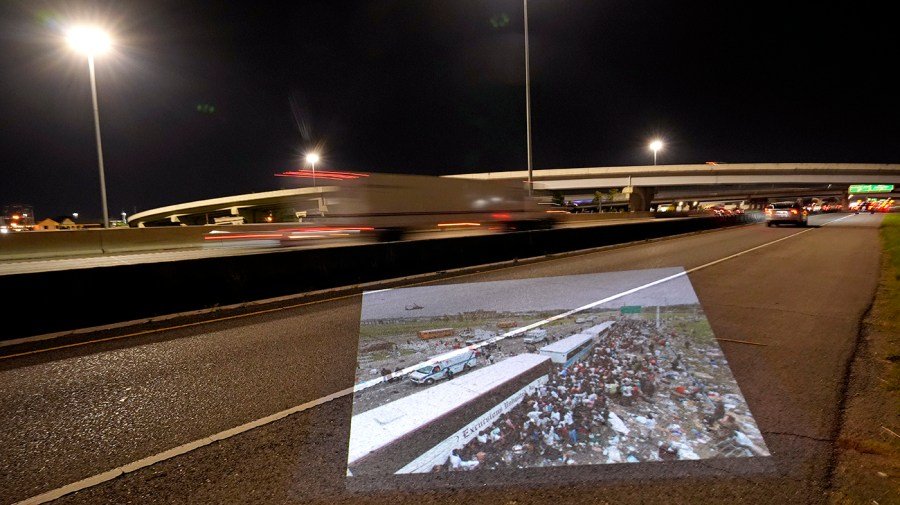
Twenty years after Hurricane Katrina ravaged New Orleans, killing 1,392 people and raising serious questions about the nation’s ability to handle natural disasters, current and former employees at the Federal Emergency Management Agency (FEMA) say the Trump administration is moving emergency management policy backward.
The nation dramatically revamped its emergency response policies after the disastrous flooding in New Orleans, including through legislation named after the storm, known as the Post Katrina Emergency Management Reform Act (PKEMRA).
Now the Trump administration is seeking new changes to FEMA, arguing more power and money should be given to the states. President Trump has discussed axing FEMA entirely, though officials have dramatically shifted their tone and in recent months have emphasized reforms, rather than a closure.
Even those calls have generated worries on Capitol Hill and pushback from former FEMA employees.
One group of current and former agency employees released a letter this week that said “FEMA is enacting processes and leadership structures that echo the conditions PKEMRA was designed to prevent.”
Jennifer Forester, one of the staffers who signed the letter, said the biggest issue she has seen is inadequate staffing as the administration seeks to reduce the size of the federal government overall, including at FEMA.
“We’ve lost a lot of invaluable institutional knowledge. We have lost a lot of workers who knew so much about how things work, about how little day-to-day things work, who had good working relationships with outside entities,” said Forester, who was put on leave after she publicly signed the letter.
News outlets have reported FEMA is down by about 2,000 staffers, or about a third of the agency’s permanent workforce, since President Trump took office.
In response to the letter, FEMA spokesperson Daniel Llargués said in a written statement the agency is working to make “accountability and reform a priority so that taxpayer dollars actually reach the people and communities they are meant to help.”
“It is not surprising that some of the same bureaucrats who presided over decades of inefficiency are now objecting to reform. Change is always hard. It is especially for those invested in the status quo. But our obligation is to survivors, not to protecting broken systems,” Llargués said.
The Trump administration is considering broad reforms at the agency, including through a FEMA review council it has established.
This week, during a meeting of that council, Homeland Security Secretary Kristi Noem said the administration was considering shortening the window for postdisaster funding.
“The president believes that we should be in a disaster response portfolio and footprint, but the long-term mitigation should not be something that the federal government is continuing to be involved in to the extent that it has been in the past,” she said.
Forester told The Hill that comments about eliminating the agency are contributing to a “culture of hostility” that encourages people to leave.
The letter from employees also criticized a policy change in which grants and contracts worth more than $100,000 must be approved by Noem before they are released, which they said “reduces FEMA’s authorities and capabilities to swiftly deliver our mission.”
Cameron Hamilton, who briefly led FEMA under the second Trump administration until he was fired, said that under this administration, the agency has not become more efficient.
“Stating that @fema is operating more efficiently, and cutting red tape is either: uninformed about managing disasters; misled by public officials; or lying to the American … public to prop up talking points,” he said in a social media post. Hamilton was fired after telling Congress that he did not think the agency should be eliminated.
“FEMA is saving money which is good due to the astronomical U.S. Debt from Congress. Despite this, FEMA staff are responding to entirely new forms of bureaucracy now that is lengthening wait times for claim recipients, and delaying the deployment of time sensitive resources,” Hamilton added.
Tricia McLaughlin, spokesperson for the Department of Homeland Security, which oversees FEMA, said in a statement to The Hill that Noem “personally reviews and approves any contract above $100,000.”
“This process saved U.S. taxpayers an additional $10.7 billion. Since taking office, Secretary Noem has reviewed more than 5,000 contracts and reviews all contracts within 24 hours,” McLaughlin said.
Lynn Budd, president of the National Emergency Management Association, said she was seeing more of a slowdown earlier in the administration when funding was being withheld, but that things were returning to normal.
“Right now we’re seeing a more normal cadence as far as our reimbursements are concerned,” said Budd, who also directs the Wyoming Office of Homeland Security.
“In the very beginning there was a complete halt to reimbursements,” she said. “We are … seeing that move back to normal now.”
Yucel Ors, legislative director for public safety and crime prevention at the National League of Cities, told The Hill that his organization does not have a “comprehensive assessment” of how the elevated review policy is impacting local government, but “several local leaders have reported delays in receiving reimbursements.”
Another signer of the letter, Michael Coen, a former FEMA employee, said he believes the biggest issue facing the agency is “not having a leader that has experience in emergency management.”
“Someone with experience in emergency management would know the right questions to ask the staff to ensure that they’re leaning forward to support communities that are at risk,” said Coen, who was FEMA’s chief of staff during the Biden and Obama administrations.
The Post-Katrina Emergency Management Reform Act established FEMA as a distinct entity within the Department of Homeland Security, set qualifications and responsibilities for the FEMA administrator, and created regional offices for the agency and other roles, including a director for preparedness and a director for response and recovery.
The major storm and deaths stemming from it still loom large not only in the emergency management world but also for the public. Netflix has even released a new documentary about it.
“We’ve come a long way” since Katrina, Coen said.
He added that those who wrote this week’s letter “hope that the country doesn’t have another Katrina and that FEMA fails again, because the consequence of that is loss of life that could have been avoided.”


